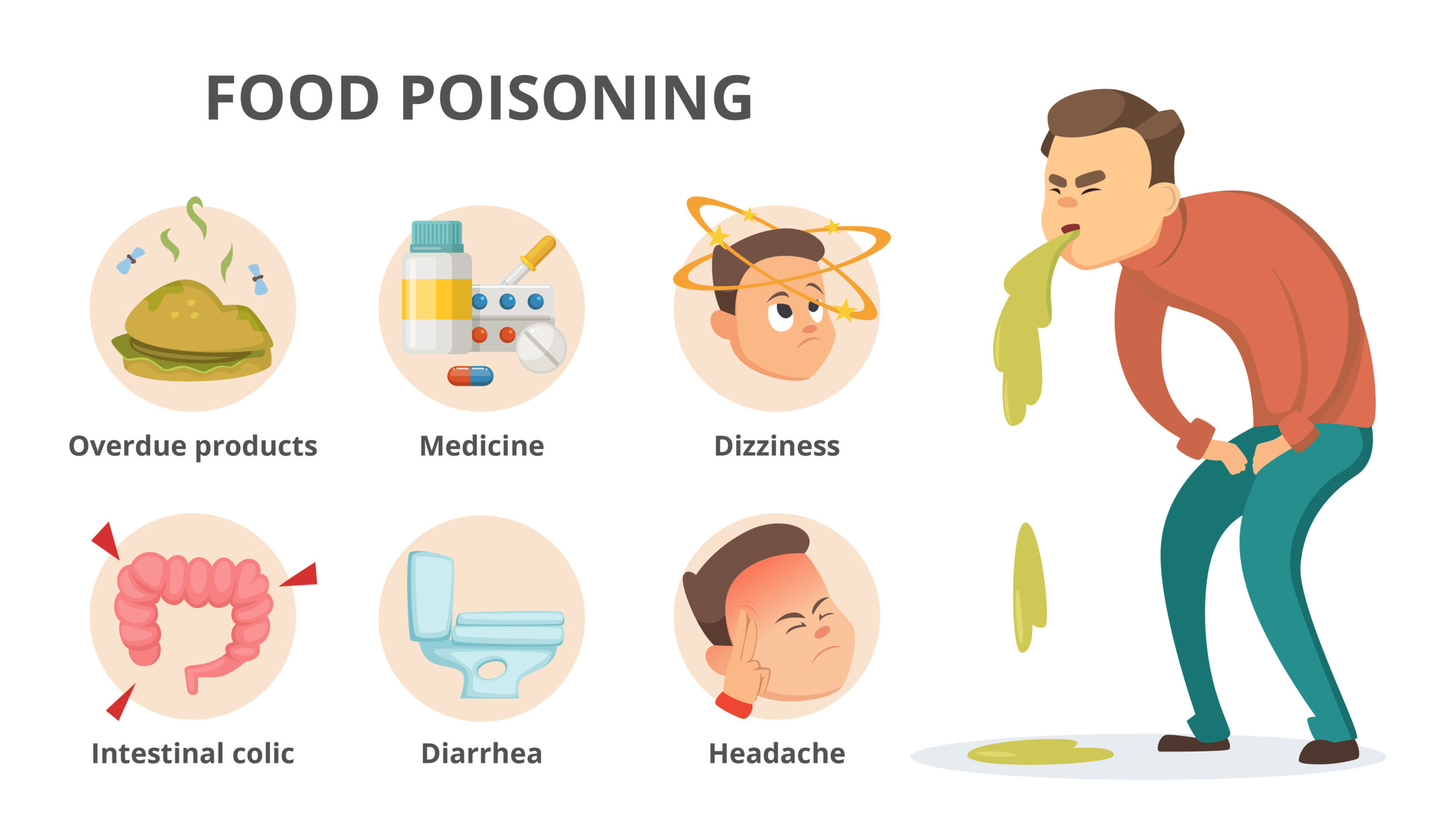General Health Tips & News
Food Poisoning: A General Overview
By A.S. (staff writer) , published on November 08, 2022

Medicine Telehealth Health
Food can be contaminated by a variety of disease-causing microorganisms, resulting in a variety of foodborne diseases (also called foodborne disease or food poisoning). More than 250 foodborne infections have been found by researchers.
Infections caused by a range of bacteria, viruses, and parasites account for the majority of them. Toxic poisons and chemicals can also infect meals, resulting in foodborne disease.
What is Gastroenteritis?
Gastroenteritis is an inflammatory disorder that affects the gastrointestinal lining, particularly the stomach and intestines. Food poisoning is a major cause of gastroenteritis, resulting in a well-known set of unpleasant symptoms.
Gastroenteritis is usually caused by viruses, bacteria, or parasites; food poisoning occurs when the source of infection is contaminated food. Gastroenteritis is often known as "stomach flu" or "gastric flu." Gastroenteritis symptoms include diarrhea, nausea, vomiting, and stomach pain. Gastroenteritis is usually self-limiting, and diagnostic tests are rarely required.
Dehydration is the most serious complication of food poisoning and gastroenteritis, especially in susceptible people like children and the elderly.
Foods that can cause Food Poisoning
Some foods are more likely to cause food poisoning and foodborne infections than others.
Animal-derived raw foods, such as raw or undercooked meat and poultry, raw or lightly cooked eggs, unpasteurized (raw) milk, and raw shellfish, are the most likely to be contaminated.
Contamination can also occur in fruits and vegetables.
The bacteria that are most commonly implicated in gastroenteritis are:
-
Salmonella
-
Campylobacter
-
Shigella
-
Escherichia coli
-
Clostridium difficile
A study from the U.S. Centers for Disease Control and Prevention’s Interagency Food Safety Analytics Collaboration, 46 percent of E. coli cases came from beef, 18 percent of salmonella cases came from seeded vegetables, and 66 percent of campylobacter cases came from dairy products.
Symptoms of Food Poisoning
Four well-known, classic symptoms are typical of gastroenteritis:
-
Diarrhea (loose stools)
-
Nausea (feeling sick or queasy)
-
Vomiting
-
Abdominal pain (‘stomach cramps’)
How to avoid Food Poisoning
-
Wash your hands, utensils, and food surfaces often.
-
Keep raw foods separate from ready-to-eat foods.
-
Refrigerate or freeze perishable foods promptly
-
Defrost food carefully
-
The best way to prevent food poisoning is to handle your food safely and avoid any food that may be unsafe.
Diagnosis of Food Posioning
Gastroenteritis is frequently straightforward to diagnose based on the symptoms alone, with no requirement for medical confirmation; the patient's symptoms are usually enough to make a diagnosis.
Stool testing is required in some circumstances. Doctors may require a sample to test for parasites or bacteria if diarrhea is accompanied by blood or remains watery for more than a few days. Specific testing may be ordered during an outbreak of rotavirus, for example.
Treatment Options
Food poisoning is frequently treatable at home without the need for medical intervention. Within a few days, the majority of patients will feel much better.
Drink plenty of water, even if you can only sip it, to avoid dehydration. You'll need to replace any fluids lost due to vomiting or diarrhea. To avoid the dangerous and potentially fatal effects of dehydration from diarrhea, oral rehydration salts (ORS) are recommended for vulnerable people
You should also consider
-
as much rest as possible
-
eat when you're hungry – At the start, stick to small, light, and non-fatty meals (bland foods such as toast, crackers, rice, and bananas are good choices)
-
Alcohol, caffeine, fizzy drinks, and spicy and fatty foods should all be avoided because they can make you feel worse.
References
-
Diarrhea and vomiting (gastroenteritis). (2016, February 17)
http://www.nhs.uk/Conditions/Gastroenteritis/Pages/Introduction.aspx -
Foodborne germs and illnesses. (2015, September 24)
http://www.cdc.gov/foodsafety/foodborne-germs.html -
Foodborne illnesses: What you need to know. (2017, November 8)
http://www.fda.gov/food/resourcesforyou/consumers/ucm103263.htm -
Foodborne illness source attribution estimates for Salmonella, Escherichia coli O157 (E. coli O157), Listeria monocytogenes (Lm), and Campylobacter using outbreak surveillance data. (2015, February)
http://www.cdc.gov/foodsafety/pdfs/ifsac-project-report-508c.pdf
Find articles related to: Medicine Telehealth Health
More articles about General Health Tips & News
Back to the Health Tips Index




